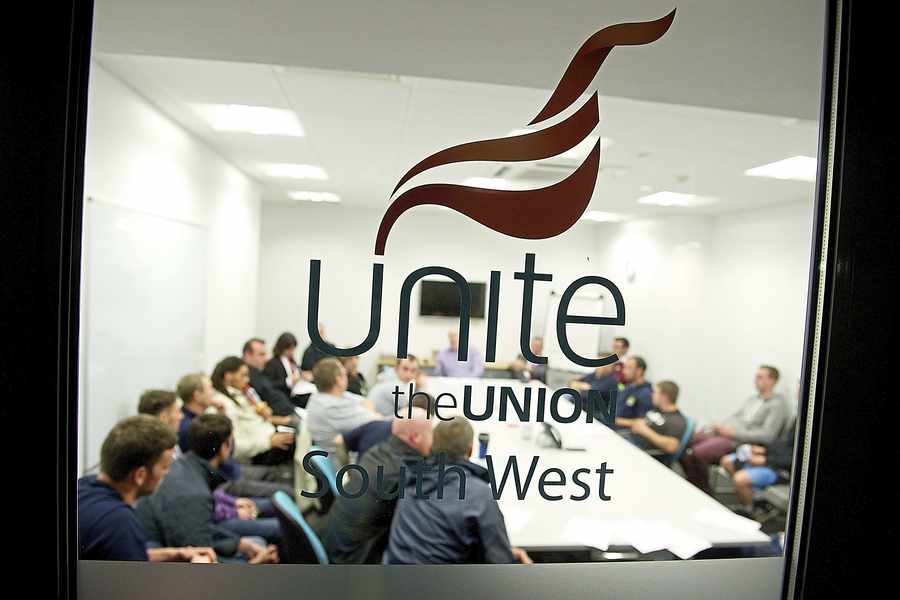- £125 million funding gap by 2019
- £60 million needed in staff cuts/savings
- Blame politicans with heads in the sand, says former Senator
- Read the JEP’s opinion below
SIXTY million pounds in staff cuts and savings are needed to help plug a funding black hole after ministers announced a predicted shortfall of £125 million by the end of 2019.
Compulsory public sector job cuts, a new health charge, changes to the benefits system and sweeping ‘user-pays fees’ where Islanders will have to pay for services that are currently free such as dumping solid waste at Bellozanne are all under consideration.
Senior politicians have said that they were not ruling any measures out as they battle to maintain funding for key priorities, particularly within Health and Education, in the coming years.
Today questions were being asked about why Islanders were potentially facing such drastic changes. Former States Member Ben Shenton, who served as the chairman of spending watchdog the Public Accounts Committee, said the Assembly had previously voted down moves to limit expenditure, with politicians happy to ‘stick their heads in the sand, blame others, and send out a message that things were great’.
Unite union representative Nick Corbel called into question the competence of the government, adding that the deficit figure had not come ‘out of the blue’ but that the States had been content to continue spending money.
Yesterday ministers announced a package designed to generate £130 million to combat the predicted shortfall.
Massive States savings plan to combat revenue shortfall

ONE of the biggest savings drives in the Island’s history was announced yesterday to deal with a £125 million shortfall predicted by 2019.
To plug the gap ministers have suggested a budget-balancing programme of £130 million in new income – £35 million from a new health charge, £35 million in other efficiency savings including benefit changes and ‘user pays’ services charges and £60 million in staff savings.
The money is needed to combat lower-than-expected revenue, coupled with increasing funding pressures on key areas such as health and education.
No measures have been ruled out, with compulsory public sector jobs cuts being considered for the first time in order to save money. However, ministers have moved to reassure employees that forced job losses will be a last resort.
Other ways to cut costs and generate income include a possible sewage tax, user-pays charges such as paying for the disposal of solid waste and a health care charge.
The States’ expert economic advisers, the Fiscal Policy Panel, have recommended that revenue and expenditure be balanced at the same time as continuing investment, to support growth and competitiveness.
Earlier forecasts indicated a potential shortfall of £50 million in 2019 if current spending levels continued, but that prediction did not include subsequent funding requests made by departments – particularly Health and Education – to pay for the expected increased use.
Treasury Minister Alan Maclean, who yesterday unveiled the new savings plan at an Institute of Directors lunch, said: ‘What I’m concerned about is making sure we learn from the past and make sure we continue to have strong public finances.
‘Hindsight is a great thing and it’s been proven that our optimism wasn’t as justified as it could have been, but we live in a particularly volatile world at the moment.
‘We’re not in a bad place now compared to most jurisdictions, who are running massive deficits without the types of assets we have available.’
When asked about potential job cuts Senator Maclean said: ‘I want to reassure people that we are looking at other measures first in terms of efficiencies and cost-cutting.
‘We are doing what I think people expect us to do – making sure the system is as efficient as it can be while delivering the services that people expect.’
Chief Minister Ian Gorst added: ‘What we’ve shown is that if we want to keep taxes low and continue to deliver a balanced budget, we are going to have to re-prioritise some of our spending and redesign government.’
The reshuffled savings/income plan comes against a backdrop of lower-than-expected revenue for the States, which followed the global and then European downturn in recent years.
The States currently employ 7,000 civil servants at a cost of around £1 million per day, but it is not yet known when staff cuts could be introduced or how many people may be affected.

AN EMERGENCY union meeting has been called following the announcement that £60 million of public sector staff cuts and savings have been proposed by the States.
They have said that because Jersey’s structural deficit is likely to be £125 million by 2019, rather than £50 million, as previously thought, the public sector will face staff cuts, including compulsory redundancies, to help balance the books.
Today, Nick Corbel, general secretary of the Jersey branch of UNITE, lashed out at the proposals and warned that their ‘membership will not tolerate’ being singled out for the cutbacks.
He went on to question whether those in government were competent to run the Island and said an emergency union meeting has now been called for manual workers.

Mr Corbel said: ‘We have organised a branch meeting of the manual workers, which takes place in two weeks’ time, to discuss the announcement and how that will impact on the workforce.
‘Manual workers, technical workers and civil servants are always the first to be targeted and I believe that is something that the membership will not tolerate. It always seems to be the public sector who are hit hardest in these circumstances.
‘But the government haven’t reviewed alternative tax proposals or capital spending projects like the white-elephant financial centre they are building at the Esplanade, which is going to cost £350 million.
‘They are likely to introduce stealth taxes that will hit the vulnerable and those on a low income the hardest, as well as those on middle incomes.’
Mr Corbel went on to suggest that the States should be looking to the Island’s wealthy to help address Jersey’s financial hardships and questioned why action had not been taken earlier by the States.
‘The benefits of the rich living in the Island has recently been profiled but why shouldn’t they pay their fair share?’ he said.
‘I would suggest that those who can afford it should shoulder part of the burden.
‘And the deficit figure has not come out of the blue.
‘It’s been known about for a couple of years but the States have continued to waste money. The question has to be asked whether this government is competent to run this Island.’
Blame politicians with heads in the sand
UNCONTROLLED departmental growth, resistance to change and politicians who stuck their heads in the sand are to blame for the £125 million shortfall predicted in the coming years, according to a former Senator.
[figure title=”New_New_DSC_5467″ align=”none” url=”/?attachment_id=1260191″ id=”1260191″ align=”right” size=”25″]
An ex-chairman of the States spending watchdog the Public Accounts Committee has today laid the blame of the multi-million-pound funding gap at the feet of undisciplined chief officers and a States Assembly that was unwilling to take difficult decisions on spending in previous years.
To plug the gap, which follows lower-than-expected States revenue, ministers have suggested a budget-balancing programme of £130 million in new income £35 million from a new health charge, £35 million in other savings including benefit changes and user-pays charges and £60 million in staff savings or cuts.
However, senior ministers have again pointed to Jerseys healthy finances, saying that their revised spending plans are needed to ensure key priorities such as health care and education can be funded in the future.
Former States Member Ben Shenton, who served as the chairman of spending watchdog the Public Accounts Committee, said the Assembly had previously voted down moves to limit expenditure and save money in the past.
It really is no surprise that we are in this mess, he said. And you cannot blame the economy or global politics, as the journey here was pretty obvious.
The blame clearly lies with those charged with getting us out of the mess, the chief officers that grew their departments and resisted change, the politicians that thought the best thing to do was to stick their heads in the sand, blame others, and send out a message that things were great.
Jersey can emerge from this, but the well-paid chief officers must start walking the walk.
Former Treasury Minister Philip Ozouf said that the States invested during the recession to help restart the economy and that Jersey was in a better position than most jurisdictions.
He added: Now what we are doing is what weve always done plan for the future and be honest about it. You have to say what you are going to spend and how you are going to fund it. We havent had our heads in the sand: weve been in the engine room surveying the horizon and havent done badly. Yes, its a big issue and a big number. We knew this was the hard reality that if the States is going to agree new money to fund health care its got to be paid for thats what 75 per cent of this debate is about.
[breakout title=”COMMENT: What the JEP thinks”]
FOR too many years, ministers have turned on those who challenge their party line that all is rosy in Jersey’s economic garden. Critics have been denounced for betraying their Island, for talking it down by departing from the carefully controlled script on our public finances which has become an insincere mantra for those at the top of politics and the civil service.
But then, a few weeks ago, the first of two revelations which confirmed what many feared was lurking behind the ministerial spin.
The Comptroller and Auditor General gave her damning verdict on the way the public finances, our public finances, are run. Karen McConnell said that the the way departments spent money ‘lacked transparency’ and was based on ‘perverse incentives’.
And yet none of it came as any great surprise. Telling Islanders that the public sector is a fat, inefficient beast is about as surprising as announcing that the earth is round.
Yesterday, Treasury Minister Alan Maclean revealed that the States black hole, our black hole, was now £125 million.
It is no coincidence that these announcements have been delivered in quick succession. Senator Maclean and his team at the Treasury are desperate to distance themselves from their predecessors. The new regime wants to disassociate itself from the past to reinforce its commitment to putting Jersey back on the right track.
The rest of us are left wondering where it all went wrong and how long the truth has been hidden from us.
Former Treasury Minister Philip Ozouf remains adamant that his record at the Treasury is unimpeachable, and that Jersey is still in a very strong economic position that few jurisdictions could dream of.
Some of that may be true and progress has been made making the public sector more efficient in the past five years, but he and other politicians stretching back several States terms must shoulder much of the blame for talking big and delivering too little on public sector reform.
We all have to hope – with a raft of new taxes and charges now being mooted – that this really is a new beginning, a new chapter marked by greater honesty and transparency about the state of our finances and a commitment to action to rein in public spending.
The taxpayer is no longer prepared to be the fall-guy for an inefficient, self-serving and self-satisfied public sector.







